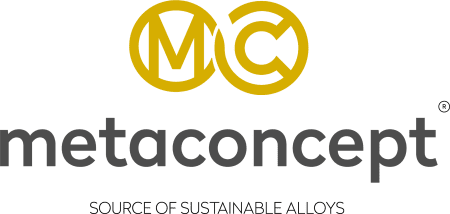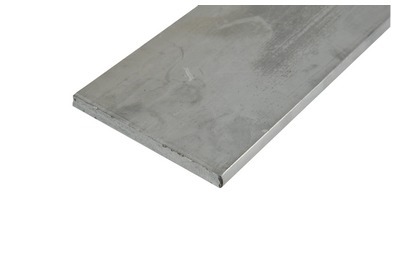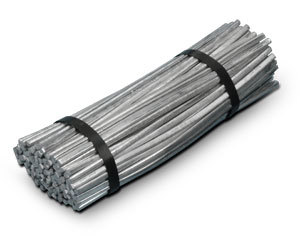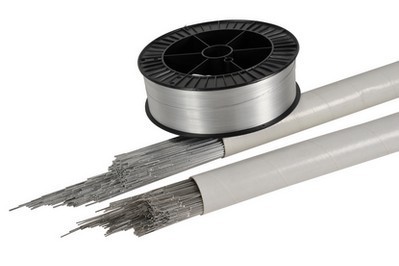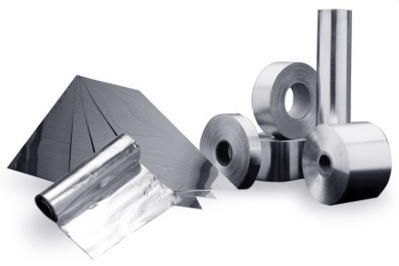
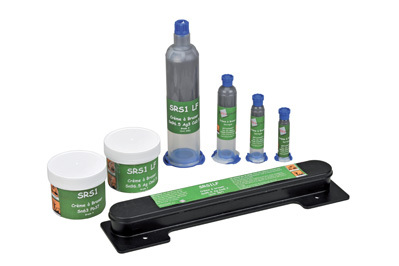
Pastes, Creams And Powders
Tinning pastes and solder creams are homogenous blends of metallic powders, fluxes and binding agents. This “all-in-one” concept saves time and allows for the precise measurement of the quantity of solder to apply. They are used in areas such as silverware, watches, eyewear, semi-conductors, aeronautics, rail, the automotive industry, various electrical and mechanical assemblies, and the building industry. These products complement the METACONCEPT Group’s range of preforms and solid or cored wires.
Metallic powders are generally designed for the manufacture of solder pastes or creams. In addition to choosing a high quality powder suited to the intended application, an appropriate composition of the alloy must be selected in accordance with the intended brazing process.Have you defined the type of application? Contact us. Our technical staff will be happy to assist you in choosing the most suitable pastes or creams.
Tinning and solder pastes are used as part of brazing procedures requiring an active cored wire and which are followed by cleaning in order to remove corrosive residues. This table shows the most commonly used alloys in the area of soft soldering :
|
Designation
|
Composition
|
Solidus/
Liquidus |
Comments
|
|---|---|---|---|
|
Tinning or solder pastes 30% Sn
|
30% tin, lead balance
|
183°C – 250°C
|
Steel, copper assemblies and copper and brass alloys
|
|
Tinning or solder pastes 40% Sn
|
40% tin, lead balance
|
183°C – 245°C
|
Steel, copper assemblies and copper and brass alloys
|
|
Tinning or solder pastes 60% Sn
|
60% tin, lead balance
|
183°C – 190°C
|
Steel, copper assemblies and copper and brass alloys
|
|
Tinning or solder pastes 97% Sn – 3% Cu
|
97% tin – 3% copper*
|
230°C – 250°C
|
All metals except aluminium – Lead-free*
|
|
Tinning or solder pastes 100% Sn
|
100% tin*
|
232°C
|
All metals except aluminium and stainless steel – Lead-free*
|
(*) Lead-free alloys – European standard no. 2000 / 53 / CE
Standard solder paints are available:
In 250 g, 500 g and 1 kg plastic pots
Or in 5 kg, 10 kg and 25 kg cans
SOLDER CREAMS
Solder creams are designed for the more accurate assembly of parts that do not require such active fluxing. Indeed, the choice of powder, its granulometry and the quality of the stripper means that the cream has a very precise action. This product’s syringe or cartridge packaging facilitates its precise application and optimises the quality of the joint.
This table shows the most commonly used alloys for solder creams in the area of soft soldering:
|
Designation
|
Composition
|
Solidus /
Liquidus |
Comments
|
|---|---|---|---|
|
Sn42 – Bi58
|
42% tin – 52% bismuth
|
138°C
|
Assemblies made from steel, copper, tin and their alloys, brass, bronze, nickel, certain stainless steels – Lead-free*
|
|
Sn63 – Pb37
|
63% tin – 52% lead balance
|
183°C
|
Assemblies made from steel, copper and their alloys, brass, bronze, nickel, certain stainless steels
|
|
Sn62 – Pb36 – Ag2
|
62% tin – 2% silver – lead balance
|
178°C – 190°C
|
Assemblies made from steel, copper and their alloys, brass, bronze, nickel, certain stainless steels
|
|
Sn96 – Ag4
|
96% tin – 4% silver – lead balance
|
221°C
|
Assemblies made from steel, copper and their alloys, brass, bronze, nickel, silver and silver alloys – Lead-free*
|
|
Sn100
|
100% tin*
|
232°C
|
Assemblies made from steel, copper and their alloys, brass, bronze, nickel – Lead-free*
|
(*) Lead-free alloys – European standard no. 2000 / 53 / CE
The creams are characterised by a flux dedicated to the intended application, unlike pastes which have a very active universal flux. Our range of creams includes 7 different fluxes each with a different type of activation.
METACONCEPT FLUX
|
Designation
|
Classification
|
Applications
|
 Procedure
|
Alloy
Sn / pB |
Lead- free alloy
|
Low T° alloy
|
|---|---|---|---|---|---|---|
|
SRS1 RMA
|
Halogen-free
resins |
Tin. lead, copper, silver and their perfectly clean alloys
|
D/P
|
X
|
X
|
X
|
|
SRS1 RA
|
Halogen resins
<0.2% |
Electronics and connectivity applications
|
D/P
|
X
|
X
|
X
|
|
MTC4 RMA
|
Halogen resins
<0.1% |
Tin, lead, copper, silver and their slightly oxidised alloys, mechanical and electrical applications
|
P
|
X
|
X
|
NC
|
|
CSC5 WS
|
Organic, water
soluble, activated |
Electronic applications, can be washed in water: to be cleaned, screen printing
|
P
|
X
|
X
|
NC
|
|
BWP WS
|
Organic , water
soluble Highly activated |
Plumbing and mechanical applications Tin, copper, silver, zinc, iron, nickel, stainless steel and their even slightly oxidised alloys
|
D/M
|
NC
|
X
|
NC
|
|
MTC5 RA
|
Halogen resins
<0 ,25% |
Tin, lead, copper, silver and their slightly oxidised alloys, mechanical and electrical applications
|
P
|
X
|
X
|
NC
|
|
TTN
|
Halogen-free
resins |
High temperature, electronics, connectivity applications
|
D/P
|
NC
|
NC
|
NC
|
D = dispensing/syringe
P = stencil/screen printing
M = manual
Cream storage: 12 months in a refrigerator at 10°C +/- 5°C.
Normal temperature of use: 20°C to 25°C
Extreme peak in temperature: 2 hrs at 45°C
POWDERS
Metallic powders are generally designed for the manufacture of solder pastes or creams. Powders with a particle size greater than or equal to 75 microns are used for the production of tinning or solder pastes. Powders with a particle size of less than 75 microns are used for the production of solder creams. This table shows the most commonly used alloys in the area of soft soldering: Make sure that you store the powder in a cool and dry place. A prolonged stay in a wet environment could lead to “caking”.
|
Standard alloys:
|
Solidus / Liquidus
|
Standard lead-free alloys*
|
Solidus / Liquidus
|
|---|---|---|---|
|
Sn30 – Pb70
|
183°C – 255°C
|
Sn42 – Bi58
|
138°
|
|
Sn50 – Pb50
|
183°C – 215°C
|
Sn96 – Ag4
|
221°C
|
|
Sn60 – Pb40
|
183°C – 190°C
|
Sn99 – Cu1
|
227°C
|
|
Sn63 – Pb37
|
183°C
|
Sn 100
|
232°C
|
(*) Lead-free alloys – European standard no. 2000 / 53 / CE These tables show the most commonly used alloys in the area of soft soldering: For other alloys, contact us.
TINNING OR SOLDERING PASTES
- Electricity
- Plumbing, sanitary installations, heating
- Electromechanics
100% tinning paste has been specially designed for cooking- and food-related tinning.
As the flux is zinc chloride based and contains additives that are flammable when the soldering temperature is too high, it is necessary to take all usage precautions when heating with the torch.
SOLDER CREAMS
The creams can be used in all industrial and electronics sectors requiring simple and safe, precise and high performance soft soldering.
Formulations incorporating zinc chloride fluxes, lead-free and cadmium-free powders, meeting occupational safety and environmental regulations.
The product safety information sheet below is available upon request from the METACONCEPT Group.
Tinning pastes are designed to be applied via dipping, baths, with brushes or using syringes fitted with large diameter needles. Then, heat it in the furnace or with a torch to melt the alloy. Thanks to the simultaneous action of the heat and the flux the paint distributes evenly resulting in a watertight assembly with satisfactory mechanical strength. As regards solder creams, they can be applied manually or mechanically either with a syringe or distributed using a screen printing screen. The “refusion” is achieved using a flame, a furnace, via induction or electrical resistance.
- Do not smoke at the workstation.
- The workstation must be well ventilated.
- Wash your hands when leaving the workstation.
metaconcept, source of committed alloys
metaconcept is a supplier of tinning or soldering paste and soldering cream for various sectors. We are a company specialised in the design and production of tin-based non-ferrous alloys and associated fluxes dedicated to soldering, brazing and soft soldering and various other industrial uses. The alloys we produce are designed for craftsmen, retailers and industrialists in various activity sectors.
As a leading player in the recycling of non-ferrous metals in France, we offer high quality alloys from environmentally friendly sources.
The preservation of natural resources and the environment of the planet are part of our commitment to ecology and the future of our planet. Therefore, we help companies to reduce their environmental impact by supporting them in their waste recycling efforts. To this end, we have a branch specifically dedicated to the recycling and recovery of old non-ferrous metals. This branch is equipped with specific equipment designed for sorting complex waste containing lead, tin or silver. The process allows us to recover these wastes and to re-allocate them for other uses.
On 1 January 2022, metaconcept was awarded the Coq Vert label. This label certifies our commitment to environmental protection and the preservation of the planet. Thus, by working with us, you benefit from products resulting from a recycling process. The metaconcept tinning and soldering pastes and soldering creams are obtained from this recycling process. Their quality is guaranteed and they can be used in the automotive, railway, aeronautical, electronic, semiconductor, construction, electrical and mechanical assembly industries, etc. These products comply with the standards and regulations in force.



